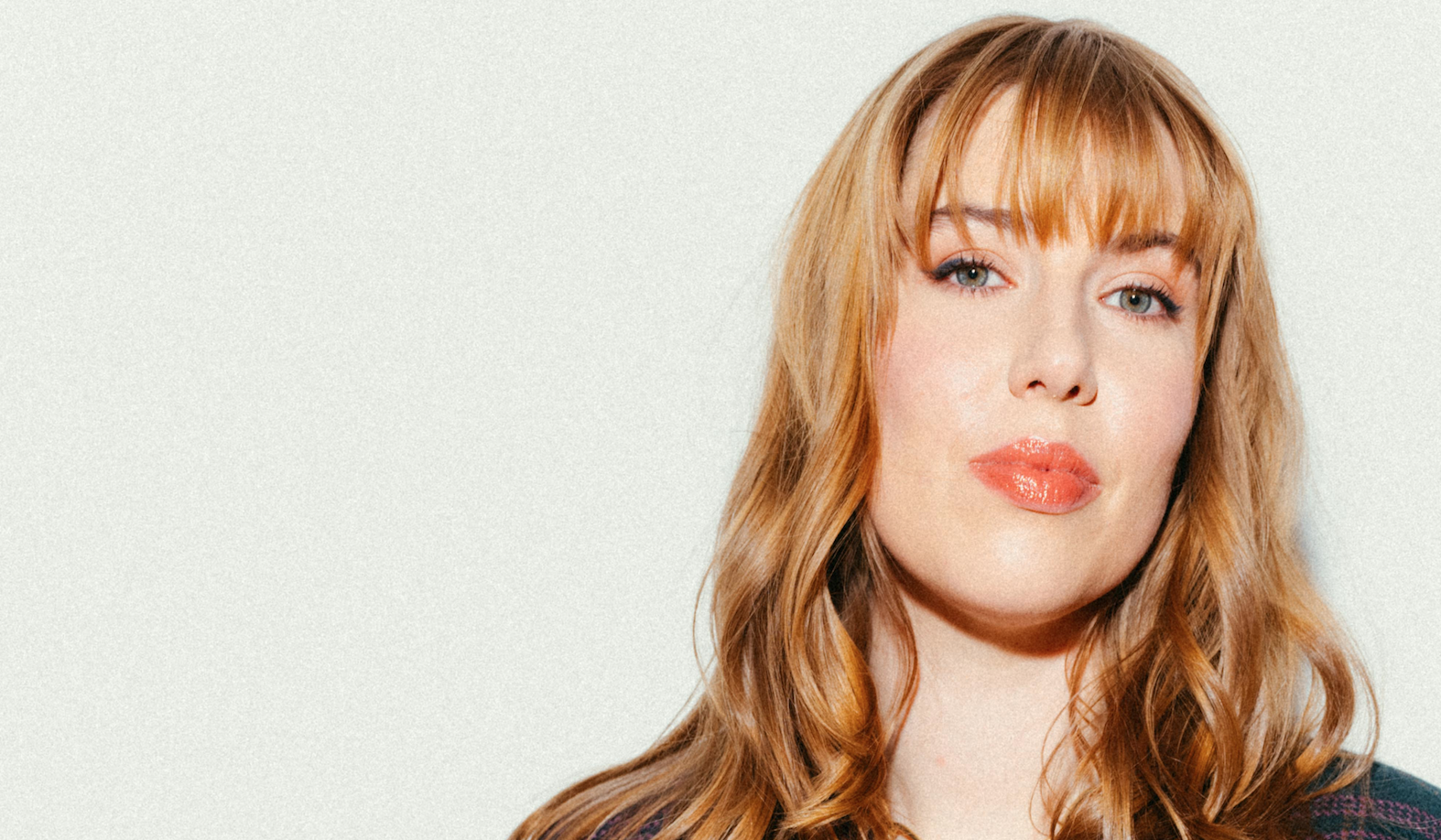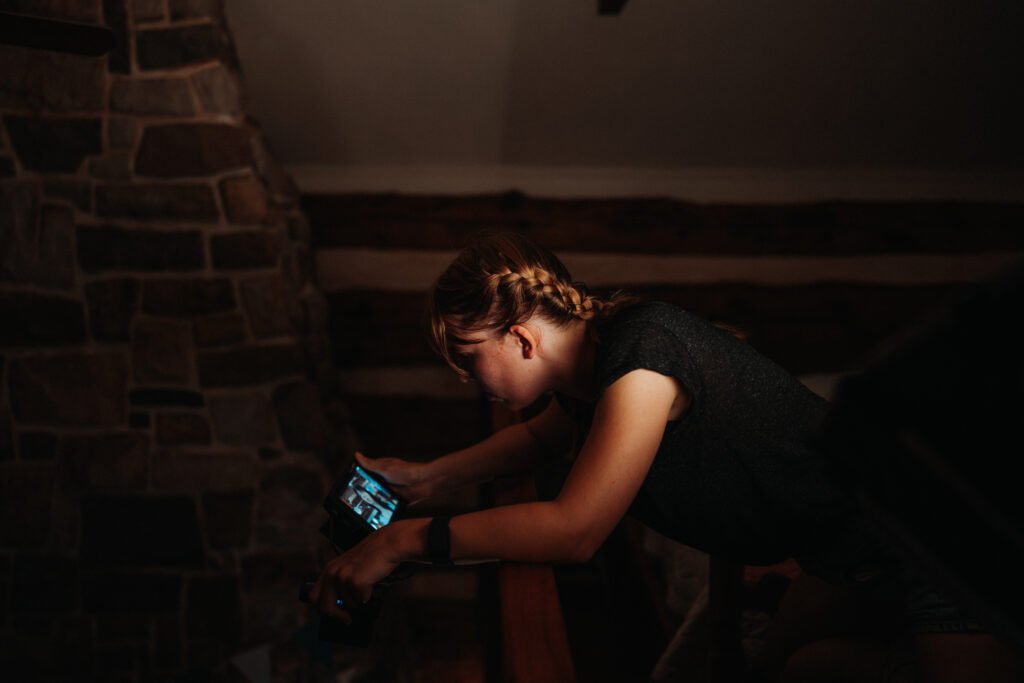Rite of Way – Smart and Funny Always Works.
Riley Helm shows pure comedic genius in the cleverly titled short ...

Through her latest film, ‘Get You, Better’, Danica Jensen explores the heart-wrenching realities of addiction and some of the barriers to seeing help. A story which is inspired by her mother’s own experiences.As a multifaceted talent with credits as director, writer and actor, she has shown the ability and interest to tackle complex and often overlooked themes with sensitivity and nuance.
In this candid interview, she shares the personal journey that led to the film’s creation, the challenges she faced on set, and her thoughts on the reception of her work. She talks about her love for ghost stories to the deep emotional core of her characters.
Danica – It’s so nice to meet you! If you want to get to know me by what I do: I direct for theatre and for film, I act in things, and I write when I have a story on my mind that won’t leave me alone. I love a good ghost story, and have a couple of really great first-hand ghost accounts next time you’re in the mood for a spooky story.
Danica – Absolutely — so the first scene of the film is directly taken from the story that my mom used to tell me. It was back in I want to say the 80s, she was trying to get her friend into rehab for alcoholism and they refused him and said it was because he wasn’t “drunk enough.” My mother was understandably baffled by that response, so she sarcastically asked, “If I bring him to a bar and then bring him back, you’ll take him?” And they basically said, “Yes.” That moment ended up in film verbatim. She was thankfully able to persuade them to take him then and there. But I was always fascinated by what would happen if she couldn’t have convinced the rehab differently? And what those moral implications would be? If you love this person and you would do anything to help them, how much harm would you be willing to do in service of helping them? Trying to figure out the answer to that question is what led me to write the first draft of the script.
Danica – Well, the premise of this story is really specific, for one thing. I feel like the convention of a lot of addiction stories is related to the protagonist struggling against their and addiction and working to accept that they need help; this story happens after that, like, what’s that struggle when you’ve said you want help and no one is willing to help you? I’ve really never seen that before. There’s really a strange culture of means testing in these kinds of social services that I wasn’t aware of, and I think a lot of people without the first-hand experience don’t know about either.
Danica – My in-point for these characters was really heartbreak; the pain of the person you love breaking your heart, the pain of loving someone you know you can’t be with. So even though in the case of this story the mechanism is alcoholism, addiction in many forms, perhaps co-dependency in the relationship, the heart of this story lies in heartbreak. There’s a huge amount of grief in these characters, and I could draw from personal experience there.
Danica – The hardest thing for me was not being able to watch monitor. I’m on screen for 95% of the film, and our days were packed, so we just didn’t have time to watch playback constantly. Sometimes we could a hide a monitor off screen during another character’s coverage, but I also wanted to be a good scene partner and knew that I had to prioritize excellent performances. So I had to put a ton of trust into my collaborators, folks who might not normally chime in about performance — my DP especially.

Danica – The final scene of the film is oner, so that was a little trickier than the rest in terms of syncing up all the moving pieces — camera and performance etc… We also shot that scene on day one, before we shot anything that took place at the bar. So it was tricky to establish the stakes of that ending moment when we hadn’t lived through any of the escalation to get there. Needless to say, this is a scene where we did stop after each take to watch playback.
Danica – Logan Floyd is our DP — it’s all him. I don’t recall ever giving any camera note on set the whole shoot, and that’s largely because Logan and I did so much prep and quite frankly mind-melded in pre-production. I did, and I’m not hyperbolizing here, probably 100 hours worth of visual research. So many stills, so many comparable films — I had to get so specific because I knew my time on-set was going to be focused on performing and focused on the other actors. I had to trust him with the world and it paid off. He just totally nailed it.
Danica – You know, my favorite stories are questions. And the question here, to me, is “how far would you go to save the person you love?” I want audiences to genuinely and authentically engage with that question, engage with these characters and the story. And then whatever they get from that is their own unique takeaway. That said, I very much wanted to raise awareness about means testing in this context and deepen this part of the conversation around addiction that many of us are just unaware of.
Danica – I’ve been really touched by the response. So many people have reached out with similar stories that they have had personally and with their loved ones. Even more people are amazed to hear that this is a potential challenge people face, and we’re really thrilled that we’re bringing awareness to this issue. The people that have nice things to say about the performances or technical aspects is just icing on the cake. What always matters most to me is that people are engaging with the story personally, challenging their own worldview against it, feeling seen by it, learning new things… and that’s what we’ve been hearing in the responses so far.
Danica – Once you get in the editing room, you always feels like there’s a couple of shots you maybe wished you had gotten, or something is revealed to you about the story that you wish you could rewrite or add in. I definitely have a few of those moments — I wish in the final shot (spoiler alert!) we thought to get the Nurse coming out to get Wesley! But besides those kinds of things… I’m super process oriented and we had the most amazing crew that made this process so fun and kind and joyful. With a great process you come out with a great film. And I wouldn’t change anything about that.

Danica – Oh I’m so excited about what’s on the horizon! Right now I’m in pre-production on two music videos for songwriter Sif Saga, those projects are tackling themes surrounding the allure of fame and surrendering to a higher power. They’ve both got a semi-spooky, whimsical vibe to them. Even though it might not be too obvious with Get You Better, ghost stories and “hauntings” are my sweet spot. Longer term, I’m developing a horror-comedy mockumentary about a haunted house. That one comes from personal experience too — I was a scare actor for a Halloween season in my early twenties.
Danica – I’m a big fan of the advice: “Write what you want to understand.” That’s what set me off on this whole endeavor and I think that’s where really interesting, fresh storytelling often comes from. This was a process of discovery … how I thought this story would turn out is completely different from the story that unfolded. My advice would be to follow that — follow the story, and let it lead you. Do your research. Be open to surprises.
As Danica Jensen looks to the future, she remains committed to exploring new and intriguing themes in her upcoming projects, including music videos and a horror-comedy mockumentary.
For aspiring filmmakers she shares a simple yet profound advice, “Write what you want to understand.”
It’s a guiding principle that has led her on a path of discovery and creativity, allowing her stories to unfold in unexpected and meaningful ways. With her unique voice and unwavering dedication to her craft, Jensen continues to be a compelling force in the industry, inviting audiences to engage with the deeper questions and emotions that lie beneath the surface of her films.
In Conversation With Reina K., brings to you the kind of scoop that gives you a real insight into the mind, drive and craft of filmmakers from across the world.
Leave A Reply